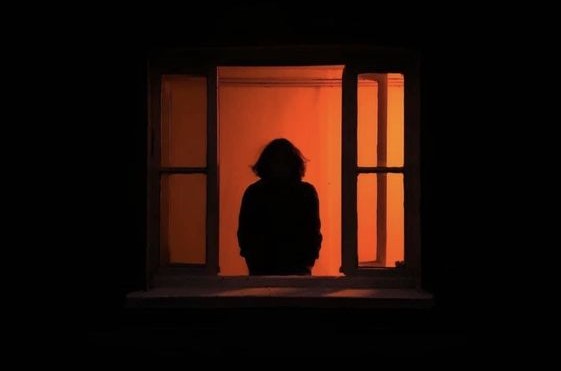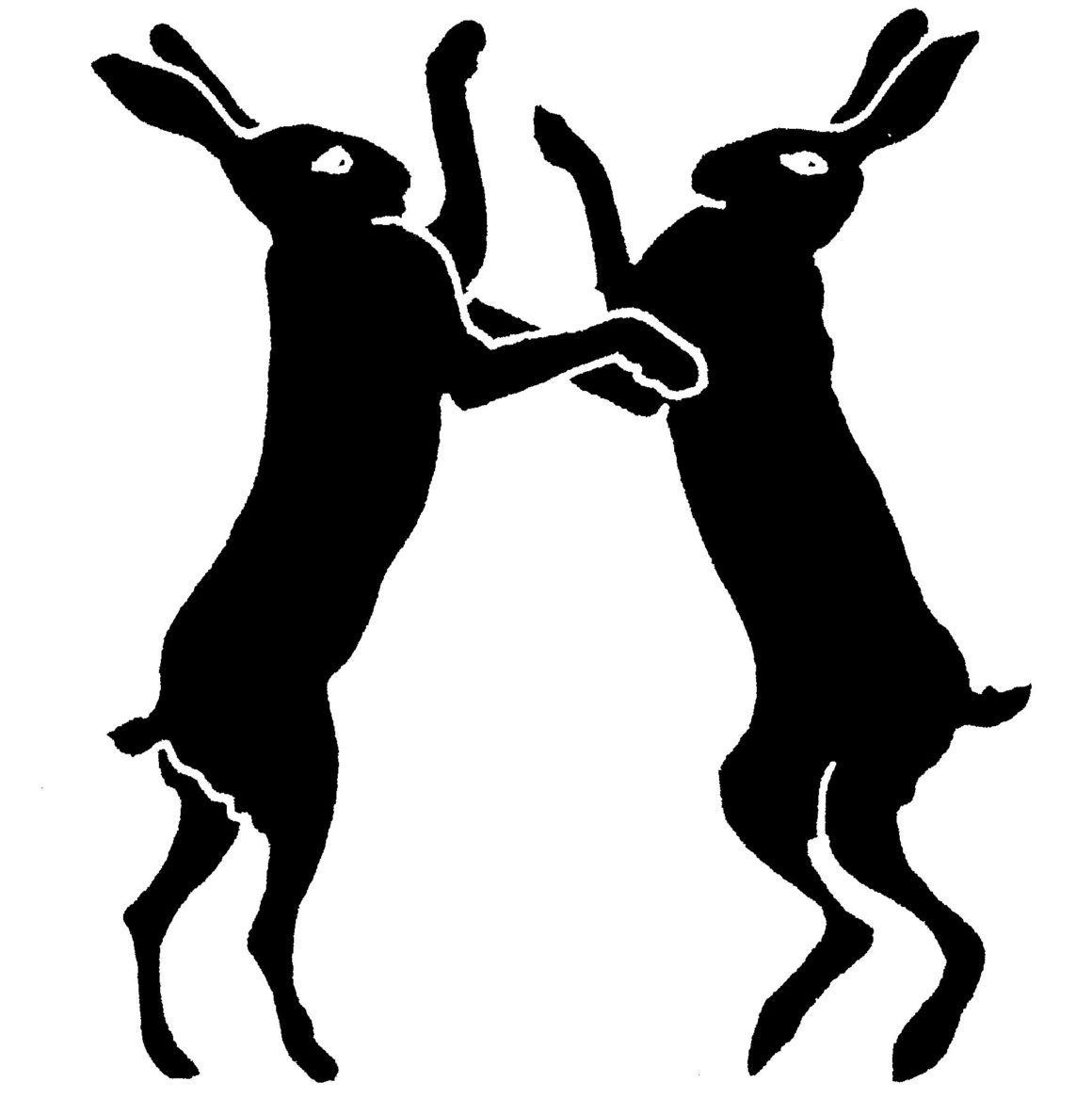Damn.
Sotto voce of the mistake he considers he’s made.
Damn.
Louder… as, once more, he scans the beach.
Which is empty, utterly emp—
Except now, with his curse and a slight pivot of his position, it isn’t… empty, at all.
A figure… a guy… a youngish guy… is crossing, and coming down, the dunes.
Kreer – from where he stands… in his trunks, near the water – hails him.
The man looks as if he doesn’t want to be hailed.
But Kreer hails him again, even so.
“I say!” Kreer shouts, raising an arm, showing a palm.
The man begins to walk towards him… with that odd, floundering gait which comes with stepping through sand.
Soon he’s mid-shore, where the beach is damper, firmer – losing his stagger, stepping normally now.
Six feet from Kreer, he stops.
“Morning!” says Kreer, having stood there throughout (in his orange-striped ‘bathers’… a yellowed once-white lace, emerging from little brass eyelets, tied in a rather limp-looking bow at the front). “I hope I’m not interrupting anything.”
The man makes no comment.
He’s younger than Kreer: by perhaps fifteen… twenty years. Slim but with some muscle, it seems. His jacket is unshowy yet has the appearance of being tailored.
For a moment, Kreer is distracted by the appearance of a respectable-looking wristwatch from beneath the jacket’s left cuff, as the man pushes back his hair, which is brown and ‘on the long side’ (to Kreer, at least).
Kreer thinks: He’ll do.
And so he begins: “I was planning a swim. I was wondering: are you here for a bit?”
The man looks at him, rather warily.
Kreer continues: “You see, I’ve nowhere to put my ‘kit’: my phone, my watch… and what not. I should’ve left everything in the car. But I didn’t really think. To be honest, it’s ages since I’ve done anything like this. Daft, really. Anyway, coming down the path, I thought, ‘Oh, blast!’. But then I thought, ‘No matter, there’ll be some rocks: I’ll hide my things there.’ But – as you see – sand, sand everywhere – to misquote the poet – with ne’er a stone to slide anything under. Place is a regular Sahara, isn’t it?”
When he stops, there’s silence (save for the sound of the sea at his back) … and an air of puzzlement on the part of the man.
Kreer fears that – in his attempts to appear friendly – he’s been too talkative… that he’s ‘gone on’. He thinks it best to encourage the man to speak.
Forcing a smile, Kreer asks: “Are you local?”
“Lived here all my life, pretty much,” the guy answers – and stops.
“We (my wife and I),” Kreer begins again, “have just moved down. I was happy enough in London, but she felt the need. ‘Call of the coast’ – that kind of thing. She picked this place. Hubby here had to fall in line. You know how it is.”
The younger man says nothing.
Conscious that he has indeed been ‘burbling’ (as Celia sometimes puts it), Kreer gets back to his point. “Would you mind just watching my things… while I’m ‘in’? A few splashes and I’ll be straight out, I’m sure. Doubt I’ll last long. Probably totally unnecessary… place like this. I expect I’m fussing over nothing. But, anyway, would you… mind?”
Kreer indicates his ‘things’ with a swing of his leg.
He and the man look down at the little nest he’s made… his ‘bits and pieces’… on the sand.
Looking up, Kreer asks: “Is this a good spot… for a swim?” His thumbs fiddle needlessly for a moment with the waistband of his trunks… in the manner of someone intending something long-distance: a crossing – hatted, goggled and larded in goose fat – of the Solway Firth… the English Channel.
“Good as any,” says the man.
“Well, the weather’s with us. That’s something,” says Kreer, grinning and glancing at the sky. “Pretty spot, isn’t it? I thought it might be busy.”
“It’s off the beaten track,” the man replies.
‘Yes, I suppose it is,’ says Kreer.
He turns and begins to walk into the water. “See you in five… I expect. Good of you,” he says, without looking back.
The sea is cold but not unpleasantly so. Entering it, Kreer wonders when… where… he last ‘went in’. He and Celia had ‘been around’, and, on the whole, to waters warmer than this: the Aegean, the Balearics, California, Florida, the Caribbean. Island hopping… happy days; their scrap book was something to be seen: photographs, tickets, menus… cuttings. And then they’d retired, taken things steady, settled down – in London. Nothing flashy: a simple flat in a decent part of town, where life had been comfortable enough. But, over time, she – C – had grown unhappy, had felt the hunger to move. She’d gone hunting… convinced him.
It’s up to his waist now. The final entry – ‘splashdown’ – will be bracing, of course. It’s always been that way. But he’s ‘acclimatised’, he thinks.
At least this bay has the compensation of a sandy bottom. He’s always preferred a sandy bottom. Could never stand rocks and pebbles. Worst of all: shells, especially when broken (… like walking on smashed glass).
He feels the silt, mud, whatever it may be, squirming between his toes. Yes, he can commend Celia for this. Clever girl.
A wave washes against him: chilly on his chest. Some black bladderwrack floats past, strung heavily on the surface. It makes him think of a widow’s ‘weeds’.
He looks away and sees the distant headland, the lighthouse at its end. Unattended these days, of course. Everything automated… computerised… emblematic of what the world has become: repetitive, robotic, lacking spark, the human touch.
He judges that the water is deep enough now. And suddenly (at least from the perspective of an onlooker), he lets himself go… plunges forward… is ‘in’.
His arms shape to what he considers to be a stroke. Almost immediately, a wave comes over his head… rocks him… swamps him… fills his eyes, ears, nose and mouth with salt water.
He spits, snorts and shakes (rather like a dog… a Salty Dog, he thinks. Wasn’t that a cocktail he and Celia had once been served… somewhere… on their travels?).
Having emptied his orifices, he settles to a sort-of rhythm.
After a few minutes, he remembers the guy, and he turns his head to the shore.
The fellow is standing there, where he left him (next to his ‘kit’).
Kreer stops for a moment, treads water, lofts an arm, gives a thumbs-up, lowers the limb, continues.
He twists onto his back, kicks, flails his arms – left and right – while not really moving anywhere, windmilling in the water.
And then he just lies there… floating (after a fashion) on the swell.
After a spell of this, he swings ninety… into the perpendicular… and he looks again to the shore.
And he sees that the guy is picking up his things and, moreover, that he’s walking away with them, briskly, across the sand.
“Hey!” Kreer calls out. “Hey!!”
But, of course, the guy doesn’t answer. His only response is to move more quickly, so that he’s no longer walking but running.
Kreer starts to swim. He, more or less, keeps pace with the guy, who – for now – is moving roughly parallel with him along the beach.
“What do you… what do you think you’re doing?” Kreer calls out between strokes and mouthfuls of seawater. “Those are my… things!”
But the guy continues to ignore him and starts to veer from the shore, repeating his earlier slip-stagger across the sand.
Kreer swims some more: front crawl (of a kind) … moving, diagonally, towards the beach.
He stops again. Looks up. Sees the fellow… who’s now at the foot of the dunes, and, in the next second, is climbing one of them.
And, suddenly, Kreer feels the coldness of the spot – this place that’s been selected so very carefully by Celia.
Around him (abruptly) the water seems much cooler. It’s not like the sea at all now. It has the temperature – so Kreer imagines – of a Scottish loch, or a mountain tarn, shadowed by peaks and ponderous clouds.
What’s more, there’s a drag, a current, that’s taking hold of his legs… his hips; forcing him out… pulling him down.
Looking landward, he sees the gap in the dunes and the cliffs… the hole in the coast… the mouth, where the river of those parts – a lovely, silvery, snaking thing – uncoils into the clasp of the sea.
Meanwhile, around his ears, Kreer feels the breeze that has gathered and which funnels into the estuary, as if eager to explore.
It’s a wind for flying a kite, Kreer thinks.
For a moment, he sees not the shore but his boyhood self: running in a field, stopping to look up at the red diamond… buffeting in the sky above; its line whipping… tightening… on the smooth wooden reel held in Kreer’s determined young hands…
The wind in the bay stirs the plentiful green blades of the estuary’s edge-marsh, shakes the sharp stalks of the marram grass that crests the dunes.
Kreer thinks he can see a slight foam where the river writhes into the salt water… an eddy and perhaps a laugh and even the whisper of some words, where the competing currents meet.
In terms of ‘distance vision’, Kreer’s eyesight is good, and, on the shore, he can make out the man… quite clearly… climbing the dune.
Such treachery, thinks Kreer. “Hey!!” he shouts again. “You!!” And, as he does so, he senses that the water around him really is rather numbing, that it truly does have a tug.
And it’s then that he cries out, as he knows that he must: “I’m drowning… damn you!! Can’t you see?!”
On the dune-top, the man suddenly turns, looks back. He does this awkwardly and loses his footing. Having done so, he falls and begins to tumble down the dune, which is the last of the sandhills that stand next to the estuary. He keeps tumbling until, at the river’s edge, his head hits a rock with a smack.
The sound is so loud, and the bay is so deserted, that it carries to where Kreer is in the water: the spot from where he’s watching, the place where he’s not drowning, or waving, but rebuking himself… for having been so awfully melodramatic.
He heads inshore.
In the shallows, he looks left and right, and sees that the beach is as empty as earlier. He stops swimming, stands, steps out from the water and onto the sand.
He makes for where the man lies: bloodied, beside the rock.
He bends over him, feels for a pulse, detects the faintest of beats.
In the man’s jacket, Kreer finds a phone. In an opposite pocket he finds a wallet. He sees that the man’s wristwatch has smashed – and leaves it.
Kreer climbs the dune and gathers his own ‘things’ amid the grass and thistles where the man dropped them as he fell.
Reaching his car, Kreer telephones.
“Good dip?” Celia asks.
“Polly put the kettle on,” he tells her. “Your fisherman is on the quay.”
Kreer considers there’s no need to do anything with their ‘catch’.
Whoever he was, the tide will take him… soon enough… like the rest.





